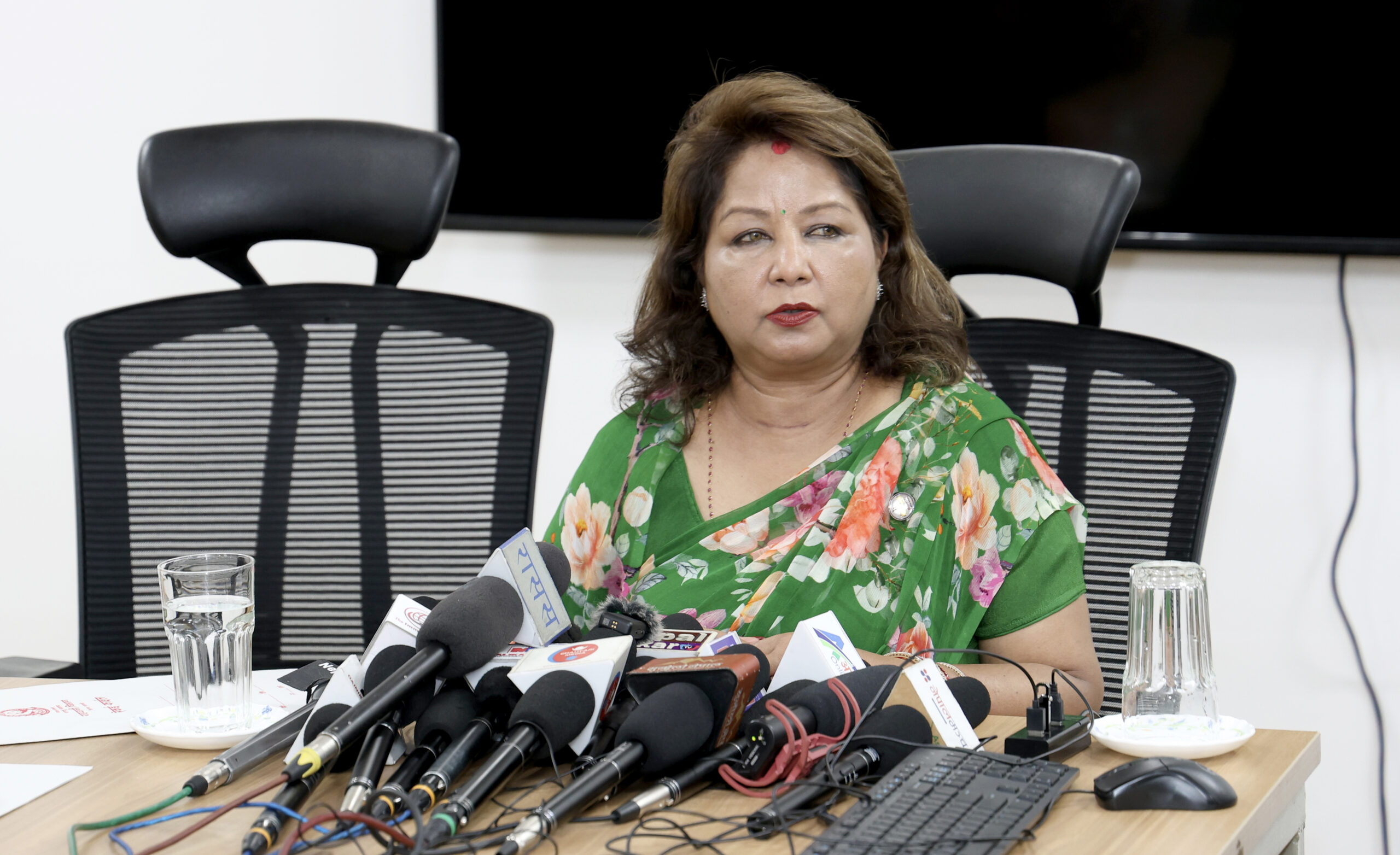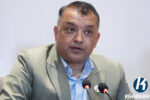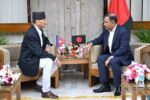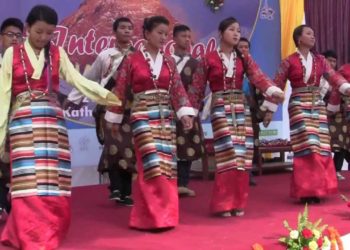KATHMANDU: The effectiveness of a foreign minister is often assessed by the success in bilateral and multilateral engagements and the impact of foreign visits in advancing national agendas.
This concept, known as diplomatic activism, involves demonstrating diplomatic skills in the global arena, negotiating national interests, and expanding a country’s influence through diplomatic channels.
Evaluating Minister for Foreign Affairs Dr. Arzu Rana Deuba’s first 100 days at the office reveals a significant impact in Nepal’s foreign relations.
She engaged in numerous bilateral and multilateral meetings, showcasing her diplomatic skills to advocate for Nepal’s national interests.
Dr. Rana’s first major foreign visit was to India on August 18, following an invitation from Indian Foreign Minister S. Jaishankar.
This visit went beyond formality; she held talks with Indian Prime Minister Narendra Modi and Foreign Minister Jaishankar, where key national interests were discussed.
At the Third Summit of the Asia Cooperation Dialogue (ACD) in Doha, Qatar, she discussed Nepal’s national interests and strengthened ties with various nations.
The meeting emphasized the potentials for increased cooperation between Nepal and India. In the meeting, she raised the issues of bilateral interests as well as the concerns of Nepal.
The Indian government prioritized Dr. Rana’s visit, drawing the attention of both Nepali and Indian authorities.
Dr. Rana noted that her courtesy meeting with Prime Minister Modi addressed the multifaceted nature of Nepal-India relations and was expected to elevate their historical ties.
Both the meetings with Modi and Jaishankar went well which also received accolade from sections inside the country.
Foreign Minister Jaishankar expressed satisfaction with India’s plan to import approximately 1,000 megawatts of electricity from Nepal.
As a result of this visit, India agreed to purchase an additional 251 megawatts from 12 hydropower projects in Nepal, raising the total electricity export to 941 megawatts.
This agreement, considered a milestone in Nepal’s energy diplomacy, also initiated India’s commitment to import 10,000 megawatts of electricity over the next decade.
Following her visit to India, Dr. Rana represented Nepal in the 79th Session of the United Nations General Assembly in New York.
During high-level sideline meetings, she raised critical issues, including the impacts of climate change and the need for international support to address these challenges.
Minister Rana also constantly followed the issues of Nepali students pursuing higher education in Bangladesh after the political unrest in the country.
The Foreign Minister and the Nepali Embassy in Bangladesh, Dhaka continuously followed up the matter and facilitated the students to return home safely.
Several Nepali students returned home via surface and air route unobstructed from Bangladesh.
Similarly, she also paid adequate attention towards Nepali citizens hired by the Russian Army and continuously took up the matter with the Russian side urging them to stop the recruiting process, provide compensation to the families of those killed and injured.
Similarly, Nepal also took up the similar kind of the concerns with the Ukrainian side as it was reported that it had arrested some Nepali nationals who fought the war through the Russian side.
At the Ministerial Meeting of the Non-Aligned Movement, she urged the international community to cooperate for the safe release of Bipin Joshi, a Nepali national believed to be held captive by Hamas during a terrorist attack in Israel.
At the Annual Meeting of the G77 and China, she highlighted common challenges faced by Nepal and other developing countries, including epidemics, natural disasters, and climate change.
She delivered these remarks on behalf of the Group of Least Developed Countries, of which Nepal is the current chair.
Dr. Rana also updated attendees on progress in Nepal’s peace process, women’s empowerment, and reproductive rights.
During the G20 Foreign Ministers Meeting, her proposal to increase representation for underdeveloped countries in major international organizations received praise, and she reiterated calls for the release of Bipin Joshi.
At the Ministerial Meeting of the Landlocked Developing Countries, world leaders appreciated her emphasis on the need for foreign aid, investment, and international partnerships to address development challenges.
During this meeting, Dr. Rana held bilateral discussions with the foreign ministers of Indonesia and Serbia, resulting in agreements regarding visa exemptions for diplomatic passport holders and officials.
A significant milestone was the signing of a memorandum of understanding with the United States to establish a Bilateral Consultation Mechanism (BCM).
This agreement, signed in Washington, D.C., is expected to enhance cooperation in trade, investment, tourism, and infrastructure development.
As the present government serves 100 days in the office, it has seriously and delicately balancing Nepal’s foreign policy conducts due to Rana’s expertise and skillful hands.
Dr. Rana’s participation in the Meeting of World Women Foreign Ministers in Toronto underscored her commitment to gender equality.
She addressed the current situation of women’s rights in Nepal and the challenges faced by women in leadership roles due to misinformation and disinformation.
At the Third Summit of the Asia Cooperation Dialogue (ACD) in Doha, Qatar, she discussed Nepal’s national interests and strengthened ties with various nations.
The two-day summit was attended by leaders from ACD member countries.
Domestically, Dr. Rana initiated an Organization and Management (O&M) survey within the Ministry of Foreign Affairs to address staffing shortages in Nepali missions abroad, particularly in Gulf countries where millions of Nepalis work.
This initiative aims to enhance services and support economic diplomacy to attract foreign direct investment.
Additionally, she has begun consultations with related ministries—including finance, industry, energy, and tourism—to develop mechanisms for promoting Nepali products abroad and attracting foreign direct investment (FDI) in Nepal.
The ministry is closely monitoring the situation of Nepali citizens in the Middle East.
Furthermore, efforts are underway to establish an Emergency Rescue Standard Operating Procedure (SOP) to facilitate the rescue of Nepali migrant workers abroad in the times of future crises.
As the present government serves 100 days in the office, it has seriously and delicately balancing Nepal’s foreign policy conducts due to Rana’s expertise and skillful hands.
(The writer is Foreign Minister’s Press Advisor)









Comment